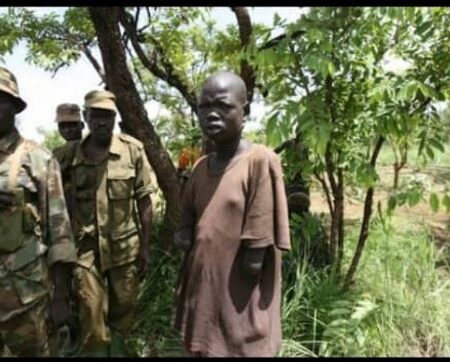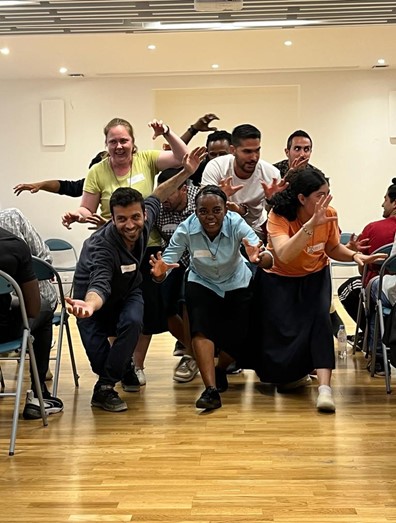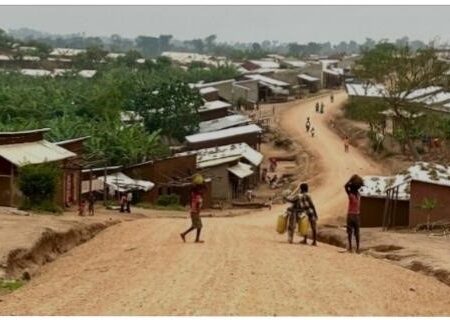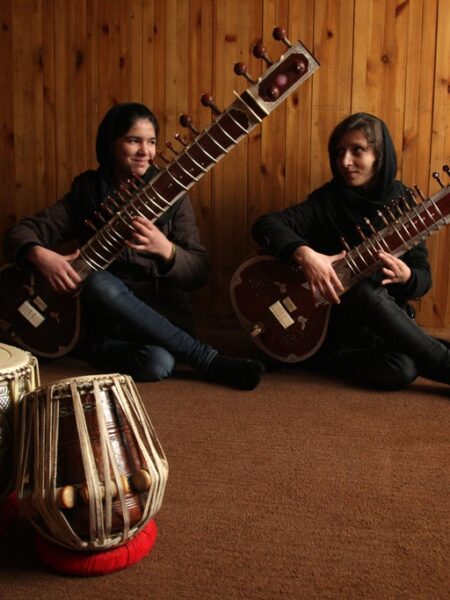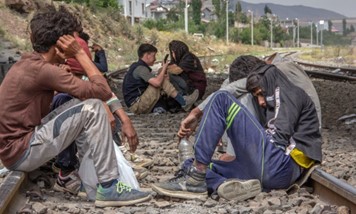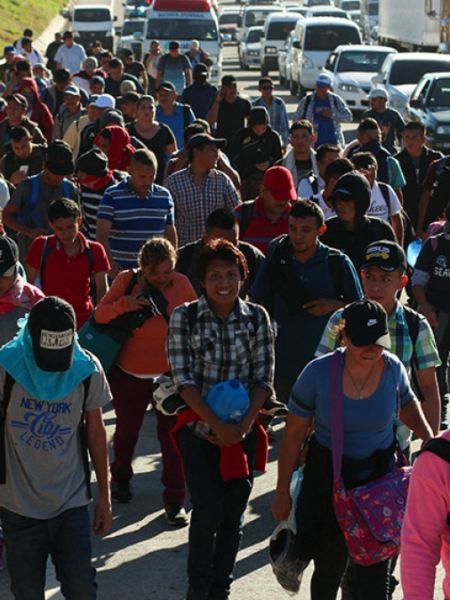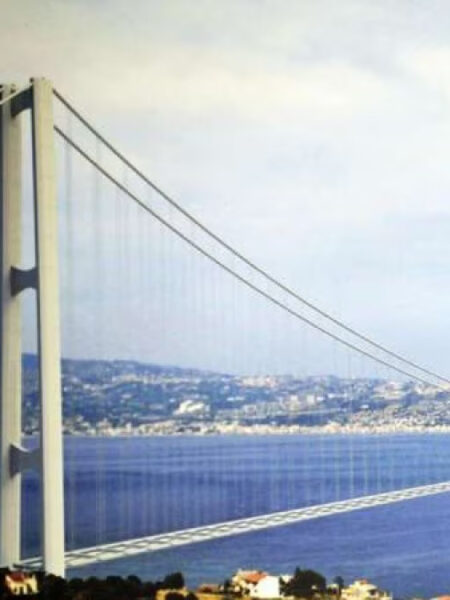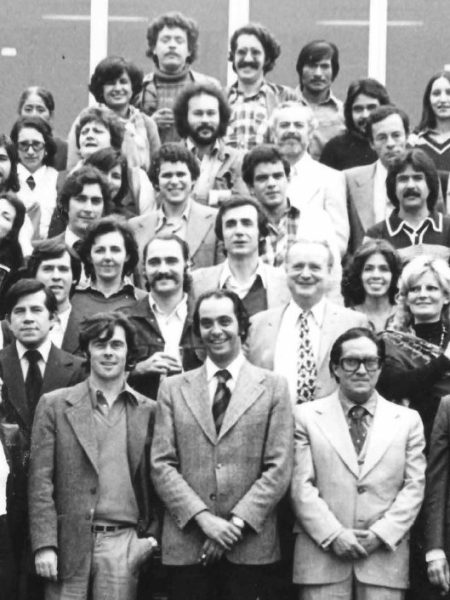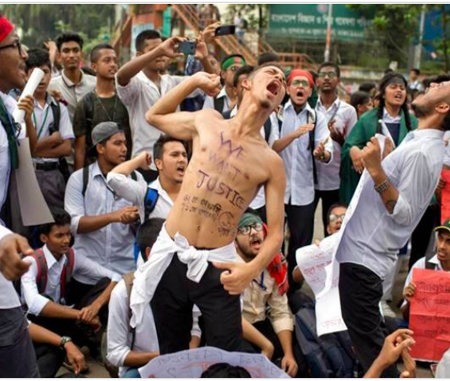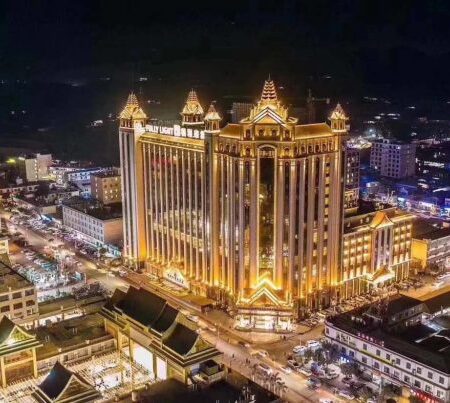Syrian Refugees’ Journey to Europe
Introduction
Syrian refugees in Europe are concerned about political regime changes and the rise of far-right ideologies, especially those with temporary protection status, as they face the danger of forced deportation.
With a change in government, many laws, including those related to internal refugee policies, can change, as happened in Denmark. After the rise of the right-wing and their view that Damascus is safe, they reopened refugee files and implemented a policy of separating families. Many of them were placed in closed locations where they are not allowed to interact with the outside world while awaiting deportation, and being deported to Syria is equal to the risk of death.
This step is considered bold, especially considering that political refugees have their own status and special agreements that all countries must respect.
However, after the equalization of global laws between refugees and immigrants in 2017, the situation became more complex, and refugees’ concerns grew. Those with asylum rights cannot be returned to their countries of origin because their lives are in danger. Host countries have control over refugees, leading to a loss of that immunity.
Currently, many Syrians opposing the Syrian regime are at risk of deportation in Lebanon, Turkey, and other countries, knowing that their lives will be threatened with arrest or death.
This is what happened to dozens of Syrian refugees who were handed over to the Syrian regime by the Lebanese government in recent months, and their fate remains unknown.
There are many reasons that forced Syrians to fear for their lives, fleeing and seeking asylum in other countries, but the primary among them is the brutal killing machine, heinous massacres, and torturous methods used by the regime and its militias. The stories of detainees and the Caesar photos are clear evidence of this.
I hope that the world realizes what has happened in Syria during the past twelve years and why we made the decision to flee and search for safety and a better future.
The war in Syria is not over, and the conflicting parties still exist, wreaking havoc in Syria (Russia, Iran, and the militias they attracted). Those who use the veto right each time are all equal in dismantling Syria and causing its destruction.
The Syrian revolution began in 2011, after Arab nations started to understand the nature of their political situations and governance in their countries.
According to UNHCR, after 11 years of war, over 13 million Syrians have been forced to either flee their country or be internally displaced within its borders[1].
The Syrian crisis still remains the world’s largest displacement crisis, with UNICEF reporting that 5.6 million registered Syrian refugees, the majority of whom are concentrated in neighboring countries, with approximately 910,600 in Lebanon, 654,700 in Jordan, and around 3.6 million in Turkey[2].
As of 2023, the latest statistics in Egypt indicate that the number of registered Syrian refugees with the UNHCR has reached 147,999, and this number is increasing[3].
Germany has received the largest share of Syrian refugees in all of Europe. According to the latest official statistics from the end of 2021, the number of Syrian refugees in Germany exceeded 800,000 people4.
Will the displaced Syrians remain at the top of lists and statistics in the coming years in Europe and neighboring countries ? Or because of the political changes taking place in the Syrian arena ? Will the scene change and witness a reverse return to the homeland ?
Many questions have been asked since 2011 to this day by many of the displaced Syrian people from their homeland, for fear of the inevitable death that surrounded them from all sides.
For this article, I interviewed four people:
Sham is a girl from Damascus, born in 2000. She has been living in Denmark for the past 9 years. She loves reading and writing a lot, and her hobbies also include walking in random streets and taking pictures.
She is a sophomore undergraduate majoring in Global Business Informatics.
Alhamada is from Idlib and was born in 1992. He has been living in Belgium since 2015.
He studied civil engineering in Syria and was not able to complete it, but he continued in Belgium and graduated from the programming department and now works for Volvo.
Ahmed is from Daraa and was born there in 1998. After that, he arrived in France in 2015. He studied the baccalaureate there and completed the university in the Bachelor of Informatics department.
He is very skilled in programming and seeks to start his own business. He loves photography and professional tools.
Aladdin is from Idlib, was born in 1994, arrived in Germany in the last months of 2015 after a tiring and harsh journey. He was unable to complete his studies because of the war, and as he stressed that in a country dominated by war, there is no reason to think about the future, but now he works in the civil service.
I. Before the migration and its causes
The revolution was peaceful, in which Syrians demanded their basic and legitimate rights, but the Syrian regime’s response to its peaceful nature was shocking. The killing of many children by security forces, most notably the 13-year-old Hamza Al-Khatib, whose image spread across social media at that time, became a reason for the spread of the revolution throughout Syria.
The Syrian regime began escalating its security measures by using live ammunition against peaceful protesters, leading to a series of raids and arrests, especially in the years 2011 and 2012.
According to the Syrian Network for Human Rights in its eleventh annual report on forced disappearances in Syria, approximately 111,000 citizens have been forcibly disappeared since March 2011, the vast majority of whom are believed to be in the custody of the Syrian regime, constituting a crime against humanity. [4]
The severity of the security escalation increased, followed by various massacres in which hundreds of thousands of civilians fell victim. The regime never differentiated between children, women, and men (everyone was a target). The fact that the people were committed to the peaceful nature of the revolution and its demands was completely disregarded. The regime’s actions included all kinds of bombardment, such as warplanes, tanks, rocket launchers, and even internationally prohibited weapons. Due to this overwhelming terror, Syrians began internal migration to cities with less damage and relative safety.
Between one massacre and another, people found themselves forced to flee under a hail of live bullets, with snipers monitoring the roads leading out of the city to places that had not yet been affected by the war. However, it was only a matter of time until these cities became extremely dangerous, and the scenario of scorched earth (“the Assad or we burn the country”) was repeated.
One of the bloodiest years in the history of the Syrian revolution was between 2012 and 2013, with the largest and most brutal massacres recorded, and the number of victims increasing by hundreds daily, alongside the suffocating security crackdown. This made Syrians contemplate migration to neighboring countries such as Jordan, Lebanon, Turkey, Iraq, and Egypt, with the thought of returning to Syria soon. The phrase that echoed on everyone’s lips was “we’ll be back in two months.” However, as the war continued and new actors entered the conflict, notably Russia and its ongoing aerial campaign since 2015, along with leaked videos showing Wagner Group forces committing atrocities against Syrian civilians, Syria became a battleground for settling scores. Syrians then realized that the return was not imminent, and their conditions in these countries were not much better, as these countries’ policies were not suitable for dealing with the situation of Syrian migrants for an extended period.
Because the governments maintained communication with the Syrian regime, the root cause of the migration, they made Syrian refugees a political tool used by opposition parties. A clear example is the Turkish political parties and their ongoing campaigns against migrants and refugees. Consequently, for Syrians, these countries became only a transit route to reach safety.
Another significant reason is the rise in racism due to unfounded ideas and the economic hardship. It was easier for opposition parties to blame refugees for everything that was happening, and media efforts were dedicated to discussing this issue, leading to the deaths of dozens of Syrians in Lebanon and Turkey due to racist motives.
II. Refugee Journey
After this stage, the Syrian migration took a more dangerous path, and eyes turned towards the west (Europe), despite the hazards and ruggedness of the routes. They had no choice but to resort to crossing the sea or land.
One of the primary motivations for migration to Europe is equal treatment in terms of rights and the law between refugees and other residents of the host country. For instance, in Turkey, refugees have no rights, and if they try to reclaim their rights through legal means, such as contacting the police or others, they will be deported to Syria, even if they are in the right.
In France, for example, both refugees and French citizens enjoy nearly equal rights, with similar laws applying to both groups. Additionally, when it comes to the assistance provided to the French population, refugees receive comparable aid, and there’s even extra support aimed at helping them integrate.
There were several points of departure from multiple countries, such as the Turkish coasts, like the Aegean Sea in the eastern Mediterranean, as well as Libya and Egypt, to reach the shores or islands of Greece and Italy, and also the coasts of Morocco towards Spain. After that, they would continue their journey on foot, crossing through various countries (Macedonia, Hungary, Serbia, etc.) to reach their intended destination. The scorching summer, the cold winter, and the looming dangers of forests and mountains did not deter them. This route has always been known as one of the most perilous, especially after significant changes in the policies dealing with the migrant crisis post-2015.
Of course, making the decision to cross the sea and expose their lives and families to danger is not easy. Each person has their reasons that brought them to that point, without worrying about the unknown.
As for i interviewed four individuals to shed light on their experience of migration from their homeland, Syria, to their intended country (Sham, Ahmad, Aladdin, and Alhamadah). They also shared the reasons for choosing to cross the sea, face the unknown risks, and the difficulties of the journey. All four of them agreed that the decision was not made lightly, but when one loses a dignified life due to war and humiliation and mandatory military service, with limited options for returning or staying, closed borders, no protective rights, and rising racial discourse, the refugee becomes an easy target for exploitation.
Here, a person reaches the conviction that there’s nothing to lose in taking the risk to seek safety and live with dignity, even if this risk manifests in crossing the sea or land.
(Ahmed’s documentation of his refugee journey and his crossing of the sea and borders)
Some of the phrases chosen by these individuals to express their decisions stood out to me. For Sham, who has been living in Denmark for 9 years, “the option of safe travel to any country was nonexistent[5]”, so they had to put their lives on the line. In support of her statement, many neighboring countries had closed their borders to Syrian passport holders due to the state of war.
As for Alhamadah, who lives in Belgium, “the decision to cross the sea was tough”, but staying in Syria, Lebanon, or Turkey was suicidal[6].
Aladdin, who crossed the sea in 2015, confirms that the Syrian migrant is politically exhausted and oppressed from all sides in the neighboring countries.
The path to arrival was not easy for all of them, with one of the main reasons being the deceit of smugglers, overloading boats with three times the required weight, making them highly susceptible to drowning. Additionally, the coast guards’ negligence in providing assistance is an experience some of them have lived through.
Sham mentioned that their journey, which started from the Egyptian coasts, took 4 days in the open sea. One thing that still sticks in her mind is the life jacket floating in the sea, which later turned out to belong to a sunken boat, with only one person surviving.
The experience Aladdin went through was no less harsh than facing death. His journey started from northern Syria to Turkey and then to the Greek shores. He says, “The rubber boat was carrying about 55 people, and because of this, there was immense pressure on the engine, causing water to flow into the boat. We began manual paddling and trying to remove the water, but it was extremely difficult. Panic and fear overtook everyone, and women started screaming, ‘We’ll die… we’ll drown.’ The boat was tossed around a lot, so we began throwing luggage and bags into the sea to reduce the weight hindering the boat. A group of us, 15 young men, decided to jump into the sea to lighten the load. After that, the boat stabilized, and the journey took about 6 to 7 hours.”
When we arrived, Greek authorities separated women and children from the young men and took them by buses. The young men were forced to walk 85 kms to reach a specific point to obtain a document called “the map,” and without this document, people couldn’t move or continue the journey beyond Greece. After the exhaustion of swimming and facing drowning, it was extremely tiring[7].
When the migrant reaches the first station, which is either the Greek or Italian islands, they have the freedom to choose the country where they want to continue their life, unless they are forced to fingerprint in a country they don’t want. Here, they are subject to the “Dublin Regulation,” which obliges other European countries to send them back to the first country they were fingerprinted in.
However, the majority of migrants managed to choose the countries they desired. This raises the question of the principles and reasons that migrants rely on in selecting their destination countries.
Speaking specifically about Syrian migrants, many of them have chosen to seek asylum in Germany, with their numbers reaching around a million. One of the reasons that drove them to this choice is Germany’s program for integrating and supporting refugees, as well as Angela Merkel’s speech on September 7, 2015, expressing Germany’s readiness to accept 800,000 asylum seekers during that year[8].
During the interviews I conducted, I also posed this question, and the answers were largely similar, with some minor variations. The main reasons for them are education, future prospects, safety, rights, and democracy. However, for Ahmed, the quick procedures regarding education and the possibility of entering high school immediately upon arrival led him to choose France, in addition to the 10-year residence permit10.
As for Aladdin, he had no choice but to reach Germany, exhausted and lacking the funds to continue his journey to Sweden, the place he wanted to reach.
When Syrians arrive in Europe, they often ask about the best countries to seek asylum in, and the response revolves around prioritization. Those wanting to reunite with their families quickly should choose the Netherlands. Those aiming for citizenship should consider Sweden and the Netherlands as the best options. If someone is searching for job opportunities and good integration programs for refugees, then Germany is undoubtedly the best choice.
III. The challenges of the first months after the journey of seeking asylum
Just as the migration journey has its dangers, there are many challenges after migration that vary from one country to another. Since we are talking about the situation of refugees in European countries, the first problem that everyone faced is the language barrier, which takes time to overcome.
When I asked this question, the responses were similar regarding the poor conditions of reception centers and the places where refugees are received upon arrival. Alhamadah said that the asylum reception center was located in a forest in Belgium, and the opportunities for a good life in such a place are very limited, with the process taking between 6 months to a year. This period had an impact on his mental state and slowed down the integration process.
As for Aladdin, who surrendered himself in Germany, he mentioned that aside from the language, the biggest challenge was finding suitable housing. He mentioned that they were initially accommodated in a basketball hall with 400 people, and the conditions during the first stay were difficult.
From my personal experience, the most challenging aspect I faced after arriving in France was learning the French language. The free language lessons provided by the government were insufficient, and we couldn’t access them before obtaining refugee status, even if the process took years. Because of this, one finds themselves in a whirlpool of searching for language learning opportunities in a country where they don’t know the language or the system, often relying on volunteer associations overseen by seniors.
After several months of our arrival, we were placed in a small town with no resources to help us learn the language or integrate. I tried to learn on my own, but due to the lack of activities and social life that young people need in the town, it significantly affected my mental state. I wished I could return to Egypt to complete my university studies, and I felt that the decision my mother made to come here was not in my best interest, realizing that I was losing one academic year after another, despite the enthusiasm I had for language learning and self-improvement.
I started traveling to the neighboring town for two hours of study each day with some volunteers and searched for conversation workshops or organizations that could help me with the language tuition fees at the university. I did not hesitate for a single minute to seize any opportunity for language learning, even if it meant leaving my family and going to another region to learn the language.
Therefore, the enthusiasm of young people for language learning and work should be leveraged through strategic integration plans and programs to help them learn the language quickly, so they can become active members of the host countries as soon as possible.
IV. Post-migration pressures
Homeless individuals are often subjected to events that may lead to psychological traumas, both in their home countries, during migration, and afterward. The post-migration environment can play a crucial role in recovering from the shocks and sadness associated with war, endless pressures of displacement, such as poverty, unemployment, domestic conflicts, ensuring asylum rights, and the loss of social networks. These pressures have a direct impact on mental health and the integration process.
It is said that each host country presents a unique set of post-migration factors resulting from local policies towards refugees and integration strategies. Refugee problems vary from one country to another; for example, in Jordan, particularly in refugee camps, they relate to poor living conditions, limited access to medical services, in addition to social and economic pressures and education challenges. According to the UNHCR statistics in 2019, the number of out-of-school Syrian refugee children in Jordan reached 83,920 out of 233,000 of school age[9].
In Turkey, limited work permits based on specific criteria and exploitation in the labor market (long hours for low wages) create significant challenges, exploiting migrants’ vulnerable situation, their urgent need for work, and exacerbating discrimination against Syrians based on their nationality, culture, and language. Currently, the Turkish government has imposed campaigns for the repatriation of Syrian refugees.
In European countries, the situation is significantly different; varying types of residence and asylum status can cause problems. Asylum seekers may be barred from working, and temporary protection status leads to feelings of uncertainty, instability, and fears of deportation and return to their home countries12.
One of the pressures faced by refugees in neighboring host countries (Lebanon, Jordan, Turkey, Egypt, Iraq) is that children are forced to leave school to work and provide basic needs for their families. Additionally, the rate of early marriages has increased due to the war and its aftermath, especially among families living in poverty and in camps. These situations are not encountered in European countries due to laws preventing child marriages before the age of 18, which everyone must adhere to.
The right to education for children until the age of eighteen, in addition to the assistance received by refugees, enables them to secure all their needs. Here, we can infer that the laws and policies of countries regarding asylum, residence, work, and education significantly impact the integration process and the mental and psychological health of migrants.
Syrians with temporary protection in Europe fear changes in political systems and the rise of far-right parties, as they are at risk of forced deportation. When a government changes, many laws, including those related to internal refugee policies, may change, as seen in Denmark. After the far-right came to power and declared that Damascus was safe, they reopened the files of refugees and implemented a policy of separating families, placing many in closed facilities without access to the outside world while their deportation is being decided, and deportation to Syria is equivalent to a death sentence.
This step is bold, especially considering that politically persecuted refugees have their unique status and rights under international agreements that all countries must respect. Asylum seekers cannot be returned to their home countries because their lives are at risk.
But the nightmare has ended. Denmark reversed the decisions that had been made in the past years, withdrawing residency permits on grounds that Syrian refugees came from “safe” cities.
The Danish activist “Line Kyer” quoted the head of the “Refugee Appeals Board” as saying that all decisions to revoke residency permits made against Syrian refugees in recent years were based on incorrect foundations and poor judgment.
She added that the Board has finally recognized that revoking the permits contradicts Article 8 of the European Convention on Human Rights. The Board called on Syrians, especially those who have left Denmark for other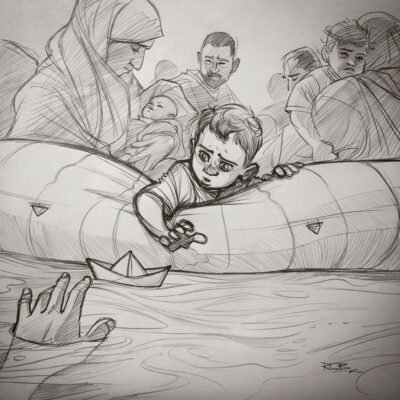 countries, to request the reopening of their cases.
countries, to request the reopening of their cases.
However, there are still many Syrians opposing the Syrian regime who are at risk of deportation in Lebanon, Turkey, and other countries, knowing that their lives will be threatened with the risk of arrest or death. This has happened to dozens of Syrian refugees who were handed over by the Lebanese government to the Syrian regime in recent months, and their fate remains unknown.
There are many reasons that forced Syrians to migrate and seek asylum in other countries, but the most important of these is the brutal killing machine, heinous massacres, and torture methods used by the regime and its militias. The images of Caesar and the stories of detainees are the clearest evidence of this.
I hope the world realizes what has happened in Syria over the past twelve years and why we made the decision to migrate and seek safety and a future. The war in Syria has not ended, and the conflicting parties are still present, causing corruption in Syria (Russia, Iran, and the militias they attracted). Those who use the veto right every time are all equally involved in dismantling and destroying Syria.
Bibliography
[1] “Eleven years on…”, UNHCR, accessed August 8th, 2023,
https://www.unhcr.org/news/briefing-notes/eleven-years-mounting-challenges-push-many-displaced-syria ns-brink
[2] “Problems after flight…., “ University of Zurich, accessed 2021, https://www.zora.uzh.ch/id/eprint/213671
[3] “Refugee context in Egypt “, UNHCR, accessed June 2023, https://www.unhcr.org/eg/about-us/refugee-context-in-egypt 4 “Syrians in Germany”, Wikipedia, accessed March 2022, https://en.m.wikipedia.org/wiki/Syrians_in_Germany
[4] “The 11Th annual….,” SNHR, accessed August 30,2022
https://snhr.org/blog/2021/08/04/record-of-enforced-disappearances1/
[5] Interview with Sham, 25/06/2023.
[6] Interview with Alhamada, 14/07/2023.
[7] Interview with Aladdin, 10/07/2023.
[8] “ Germany’s Merkel…. , “ REUTERS, accessed October 7, 2015, https://www.reuters.com/article/europe-migrants-merkel-idUSL8N1273UG20151007 10 Interview with Ahmad, 04/07/2023.
[9] “ children of jourdan…. , , “ children of jordan, accessed 2019,
, https://www.childrenofjordan.org/en/children-of-jordan/ 12 “Problems after flight…., “ University of Zurich, accessed 2021, https://www.zora.uzh.ch/id/eprint/213671
